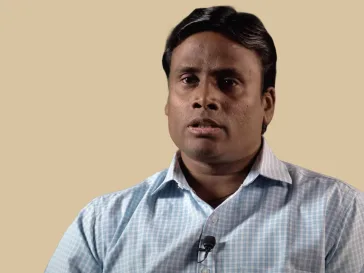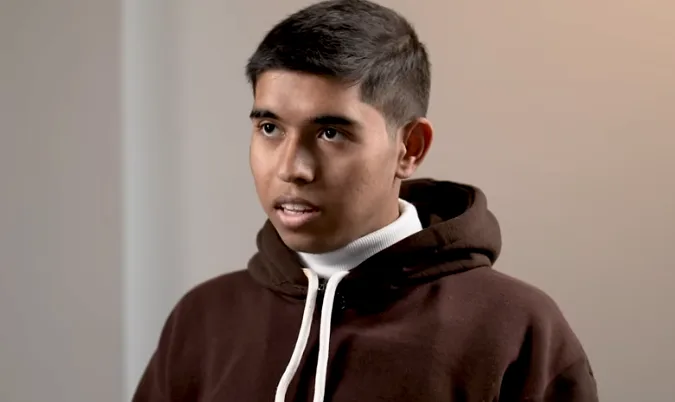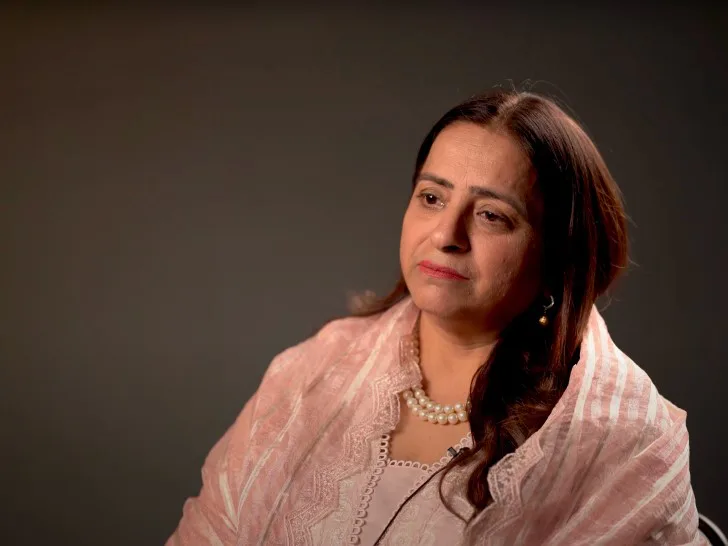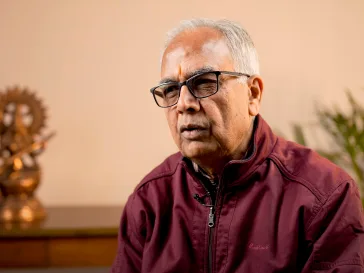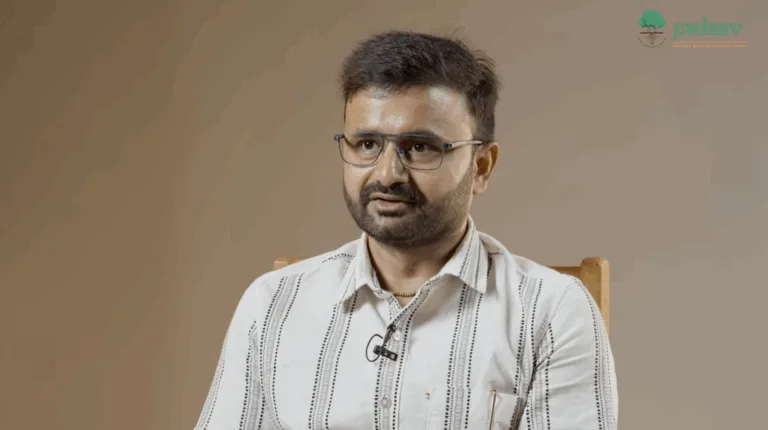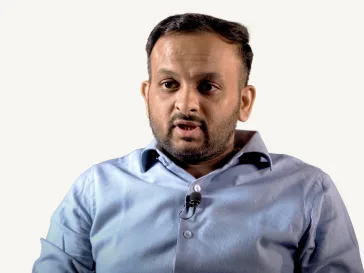Ahmedabad, Gujarat, India — Surendra Rathaur, a 34-year-old Senior Software Engineer from Ahmedabad, found his meticulously coded life disrupted by a relentless, enigmatic force: chronic pancreatitis. His journey, spanning from 2017 to 2021, involved an agonizing cycle of severe abdominal pain, repeated hospitalizations, and a pervasive sense of despair that threatened not only his career but his very existence. Rathaur’s experience illuminates the limitations of conventional approaches to complex chronic diseases and the lengths to which individuals will go in search of a sustainable solution.
A Cascade of Crises: The Body Under Siege
Rathaur’s medical ordeal began in May 2019, when he experienced severe abdominal pain radiating to his back, accompanied by vomiting and weakness. This initial attack, diagnosed as Acute Interstitial Edematous Pancreatitis (with Amylase 142 U/L, Lipase 124.4 U/L), led to a 7-day hospitalization. This was not an isolated incident; his history reveals a prior, near-fatal battle with dengue in 2017, complicated by “Kamra Kamri” (a condition where blood turns watery), which left him with a 1% chance of survival and a month-long memory loss, hinting at a predisposition to systemic inflammatory responses.
The pancreatitis, however, proved to be a distinct and relentless adversary. Between May 2019 and August 2021, Rathaur endured seven documented attacks and six hospitalizations. These episodes were frequent, often requiring admissions “महीने महीने में चार चार महीने में” (three to four times a month), culminating in 18-20 hospitalizations in total. The pain was excruciating, resistant even to multiple doses of strong painkillers, forcing direct hospitalization.
Conventional medical explanations were often incomplete or frustratingly generic. Doctors sometimes attributed his condition to alcohol consumption, a claim Rathaur vehemently denied, being a non-drinker. Other explanations pointed to lifestyle factors like prolonged sitting or consumption of outside food, or the pancreas producing excessive digestive fluid that caused infection and pain. Despite consultations with leading specialists in Hyderabad and across India, the consensus remained: manage the pain during attacks, then discharge. No long-term cure or preventive strategy was offered.
The personal and professional toll was immense. As a software engineer, his project-based work with tight deadlines was severely impacted. He changed jobs multiple times, even enduring periods of unemployment for two to three months, as companies were reluctant to retain an employee whose health frequently disrupted projects. The financial burden was staggering, reaching an estimated ₹10 lakh. Compounding his distress, his medical insurance provider eventually ceased coverage due to the recurring nature of his illness, leaving him financially exposed. This bleak reality, coupled with the responsibility of a young family (a six-month-old daughter when the attacks began), pushed him to a point of profound despair, making him feel as though his survival chances were minimal.
The Search for a Breakthrough: A Calculated Leap to Ayurveda
Having exhausted conventional and homeopathic avenues, Rathaur turned to Ayurveda as a last resort. His research led him to a patient named Jaydeep Patel, who had been successfully treated at Padaav for five years. A personal visit to Patel’s home with his family provided the crucial evidence he needed: Patel’s sustained recovery, despite his own prior struggles with conventional medicine, offered a tangible blueprint for hope.
Rathaur began his treatment at Padaav on October 5, 2021. His initial 21-day inpatient program was a structured immersion into a new lifestyle. The core principles were Aahar (Diet), Vihar (Lifestyle), and Aushadh (Medicine).
- Aahar (Diet): He adhered to a meticulously planned diet, emphasizing timely, balanced meals. Post-Padaav, he maintains strict avoidance of onion and garlic, noting a significant improvement in his well-being.
- Vihar (Lifestyle): Padaav’s strict protocol included maintaining specific postures while eating (avoiding slouching), drinking two glasses of water upon waking, and regular sleep. These seemingly minor habits were rigorously enforced and proved crucial for pancreatic health.
- Aushadh (Medicine): Rathaur received personalized Ayurvedic medications. He noted that unlike the overwhelming number of pills often prescribed in conventional settings, Padaav’s regimen involved only “दो या तीन type की दवाइयां” (two or three types of medicines) for the entire year of home treatment. These medicines worked to correct the underlying imbalances, not just manage symptoms.
Sustained Remission: A Reclaimed Life and Renewed Purpose
Rathaur’s dedication to Padaav’s protocol has yielded a profound transformation. He reports that he has had no attacks for the past five years. This sustained remission, a stark contrast to his past, has allowed him to fully reclaim his life. He is now able to attend his job, spend quality time with his family, and has even seen a promotion to Technical Lead, managing a team of 15 people. He recently completed a client communication project in Gurgaon, a professional achievement that would have been impossible during his illness.
His personal life has equally flourished. He can now consume most foods, with the exception of refined flour, which was previously unimaginable given his severe dietary restrictions.
Surendra Rathaur’s case illuminates several critical elements in the successful management of chronic and recurrent conditions:
- Integrated, Patient-Centric Care: Padaav’s methodology provides a structured approach combining personalized Ayurvedic medication, precise dietary regulation, and lifestyle modification, extending beyond mere symptom management to foster holistic well-being.
- Rigorous Adherence to Protocol: The strict enforcement of lifestyle changes, such as posture during meals, by the Vaidyas proved instrumental in sustained recovery.
- A Complementary Solution: Rathaur’s narrative highlights the potential for alternative medical systems to provide effective, long-term solutions when conventional approaches face limitations in addressing complex, chronic ailments.
- Psychological Empowerment: The shift from a state of near-death despair to one of control and purpose underscores the transformative impact of effective treatment on a patient’s mental landscape.
Today, Surendra Rathaur stands as a compelling testament to resilience and successful chronic disease management. He passionately advocates for others facing similar challenges to explore Ayurvedic treatment, asserting that it offers an effective path to health and a truly “बहुत अच्छी जोह लाइफ” (very good life).

